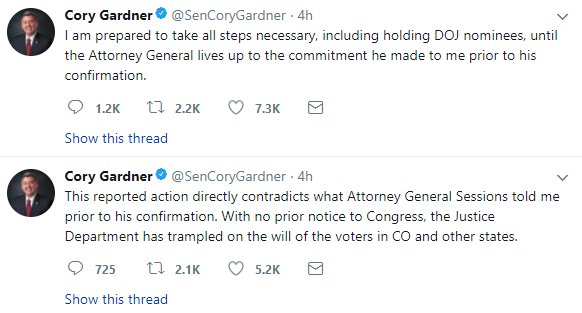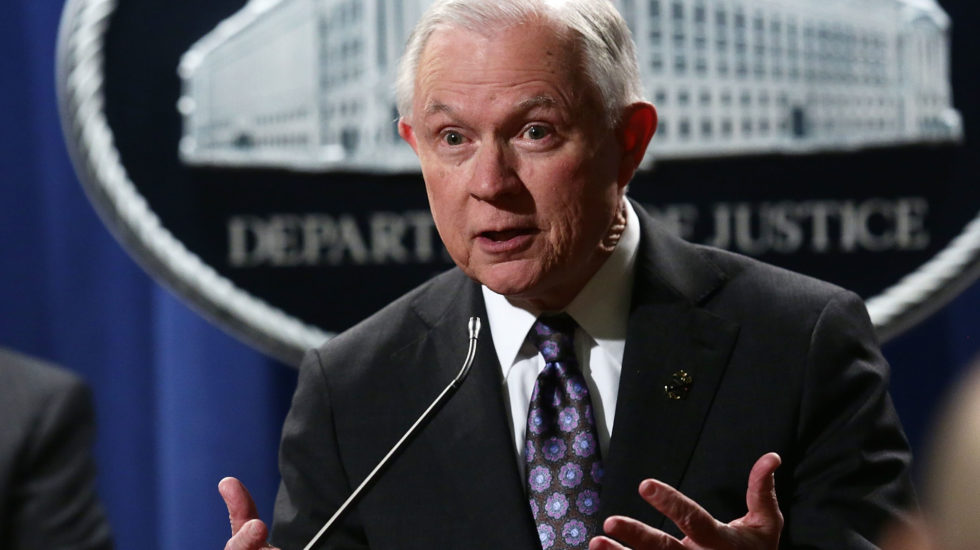Here’s what you need to know about the marijuana madness that’s suddenly infected the Justice Department.
Last November, California voters decided pot was OK for adult recreational use. It passed in a statewide referendum 57-42 percent. The measure went into effect this week and marijuana sales and taxation are off to the races.
But the sale of marijuana is still against federal law. The Obama administration announced four years ago that it wouldn’t stand in the way of states that wanted to legalize pot. So eight states and the District of Columbia did just that, the latest being California.
Enter Jeff Sessions. The Attorney General, who has compared marijuana to heroin, has decided to rescind the Obama era rule and allow federal prosecutors to go after marijuana producers. Sessions believes legal pot creates other problems, like increased drug trafficking.
Where do we begin? How about that horse has left the barn? And good luck getting it back. Imagine how many U.S. Attorneys it would take to prosecute marijuana producers who thought, until today, they were growing weed legally.
So what’s the real story here?
One is that Session and anti-marijuana advocates want to drive away institutional money from pot growing. Yep, Wall Street sees a goldmine in marijuana. One analyst predicts sales could reach $30 billion by 2021, which is more than wine. And Sessions’ decision sent marijuana stocks plunging.
So the Justice Department is going retro, reviving the failed “war on drugs.” How many times do we have to go down this road? Focusing on supply hasn’t worked, won’t work.
If the Trump administration wants to spend money on a drug problem, how about opioids? 64,000 Americans died from those drugs in 2016. Trump declared it a “health emergency’ but didn’t offer a dime to help fix it.
Update: Colorado GOP Senator Cory Gardner is not happy about the decision. Colorado is one of the states that allows marijuana sales.




